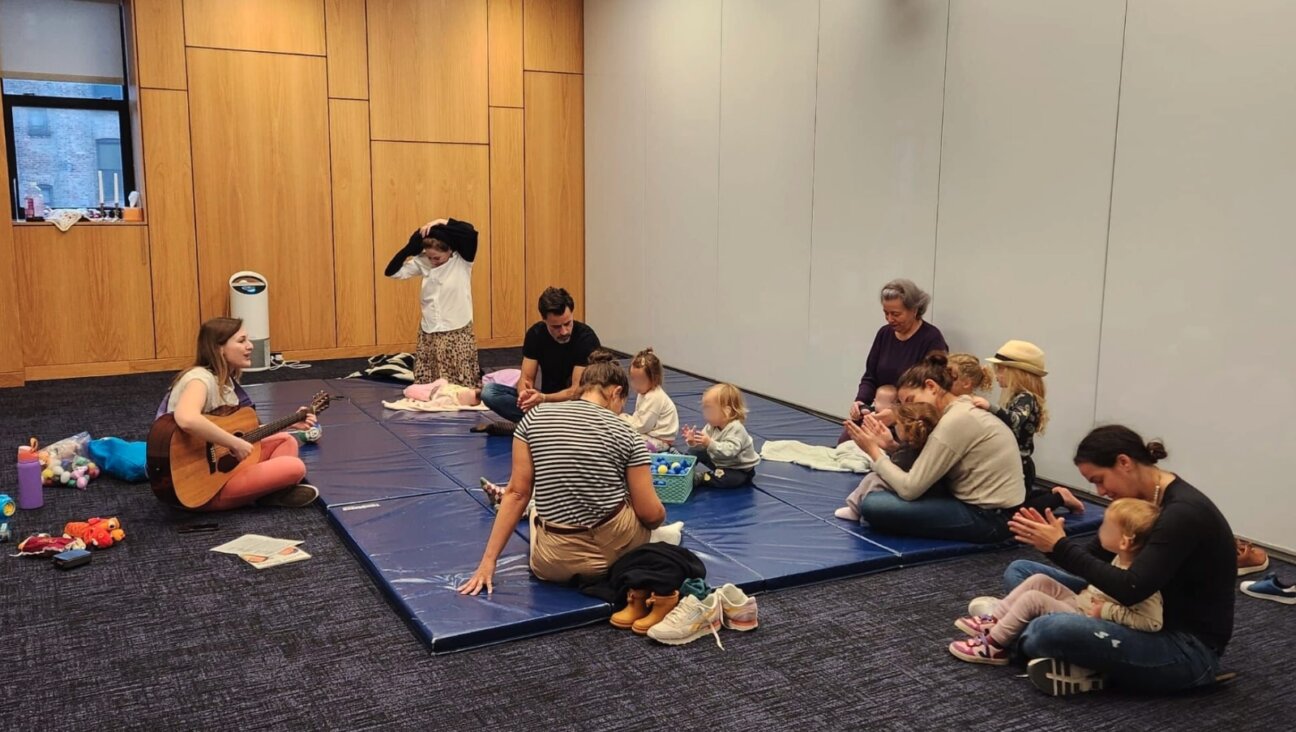Abramoff Prompts Native American-Jewish Gathering
Jack Abramoff’s dealings with Native American tribes did not set the best model for cross-cultural communication between Indians and Jews, so a group of Californians came together last Sunday to create a better foundation.
Twenty-one Indians and Jews came together for a wide-ranging discussion just five days after Abramoff pleaded guilty to defrauding four Indian tribes. The meeting, which took place at a synagogue in Palm Desert, Calif., came about after three Jews involved with Indian causes wrote an opinion editorial in The Jewish Journal of Greater Los Angeles, disavowing Abramoff’s treatment of the Indians with whom he worked.
“We were appalled by the way that Abramoff presented himself as a Jew and a religious figure in his work with the Indians,” said Gelya Frank, a Jewish anthropology professor at the University of Southern California. Frank works with Indian communities. “We thought the most positive way to approach this is to affirm the wonderful cooperation that’s gone on between these two communities.”
The 21 participants included a rabbi, two law professors, two Holocaust survivors and a leading casino consultant for Indian tribes. The Indians in attendance represented the Morongo and Torres Martinez tribes of California.
The discussion went well, participants said, although the shadow of the Abramoff scandal hung heavily over the gathering. One tribe that initially intended to take part in the proceedings — the Agua Caliente — had used Abramoff’s services as a lobbyist and decided to back out a few days before the event, which was to take place at a hotel owned by the Agua Caliente. The tribe’s withdrawal forced the organizers to move the meeting to a Reform synagogue in Palm Desert, 120 miles east of Los Angeles.
The Agua Caliente were not mentioned in the plea bargain that Abramoff struck last week with the Justice Department. In that deal, Abramoff acknowledged that he and his partner, Michael Scanlon, collected $43.3 million from Indian tribes in five states — $20 million of which was secretly skimmed off by Abramoff.
A number of participants in Sunday’s discussion said that they never had heard of a formal event bringing together Jews and Indians to discuss common causes and challenges. But one of the main points of discussion was the heavy involvement that Jewish lawyers have had in defending Indian rights. The most influential book on Indian law was written in 1942 by Felix Cohen. Another Jewish lawyer, Glenn Feldman, who was at Sunday’s gathering had successfully argued for Indian gaming rights in front of the Supreme Court.
“There is no way that the Indian people would have achieved the level of prosperity — and court victories — without Jewish intellectuals and Jewish professionals,” said Michael Lombardi, a consultant to Indian casinos. Lombardi organized the event from the Indian side.
Talk on Sunday turned to the struggles facing both communities — particularly the issues of education, as Jews and Indians seek to retain ancient traditions while preparing youngsters for the modern world.
While no other events have been planned yet, organizers have said they want to create a formal organization and Web site for Indian-Jewish dialogue.
“There’s a lot of contact and interaction, but it’s now well understood,” said Dwayne Champagne, a Chippewa Indian and a professor of sociology at the University of California, Los Angeles.





















